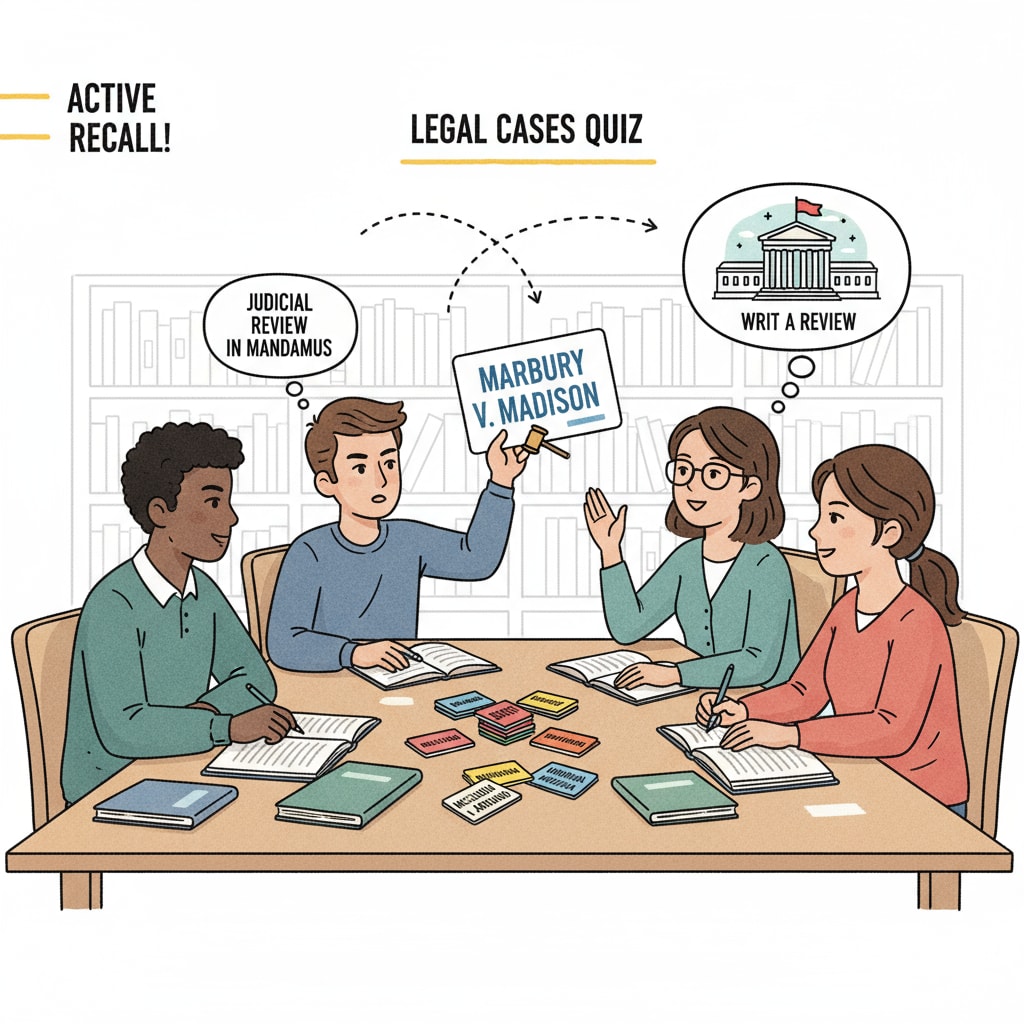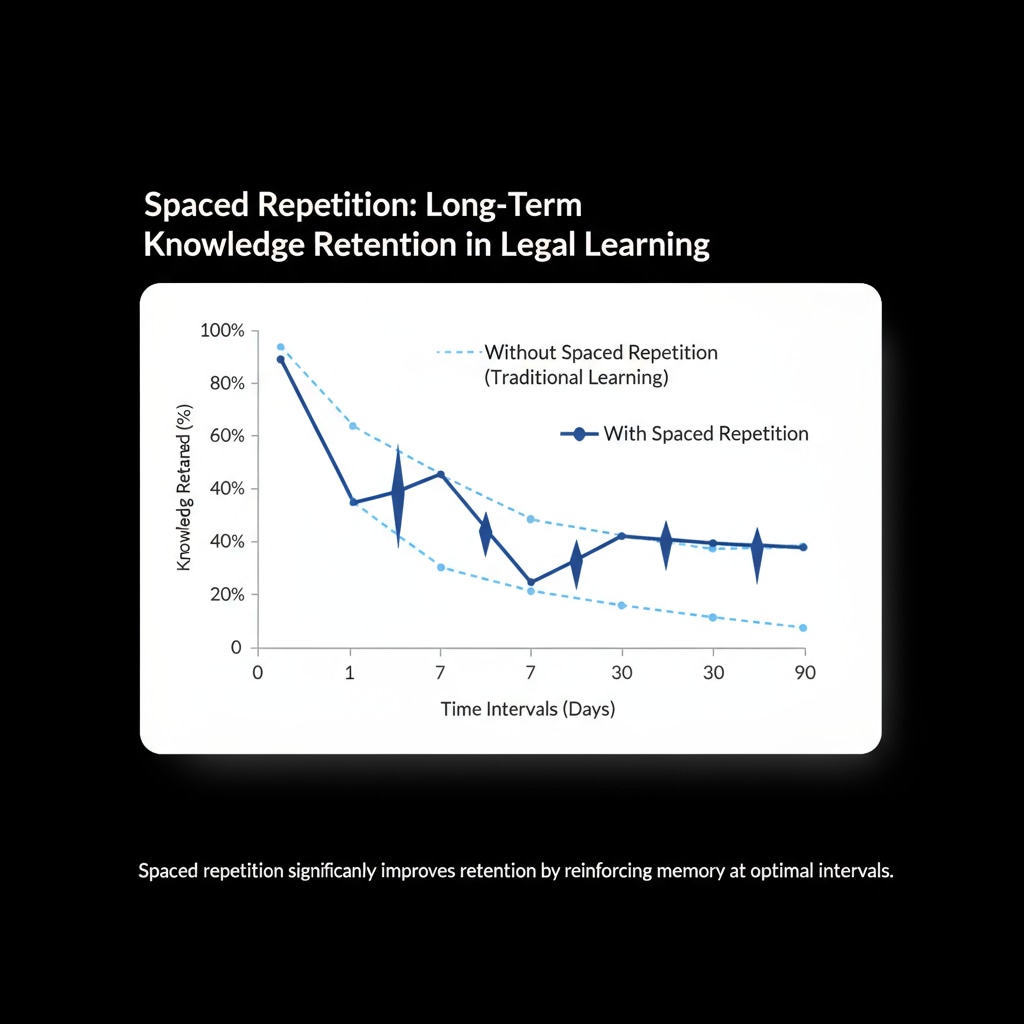Active recall and spaced repetition are two powerful strategies that can significantly enhance legal learning in K12 education. In the field of legal studies, understanding and retaining complex concepts is crucial. These techniques offer a fresh approach, revolutionizing the way students engage with legal knowledge.

The Power of Active Recall in Legal Learning
Active recall involves retrieving information from memory rather than simply rereading it. In legal education, this could mean turning legal cases into questions. For example, instead of just reading about a contract dispute case, students can be asked to summarize the key points, identify the legal principles involved, and determine the outcome. This forces the brain to actively engage with the material. According to Wikipedia’s entry on Active Recall, this method strengthens neural connections related to the learned information, making it easier to remember. By practicing active recall, students are more likely to understand the nuances of legal concepts and apply them in real-world scenarios.
Spaced Repetition: A Key to Long-Term Retention
Spaced repetition is a technique where learning intervals are strategically spaced over time. In legal learning, it can be implemented through flashcards or quizzes. For instance, after learning a new legal term, students review it after a short period, say a day, then after a few days, a week, and so on. This way, the information moves from short-term to long-term memory. As explained on Britannica’s page on Spaced Repetition, the spaced intervals allow for better consolidation of knowledge. When applied to legal education, spaced repetition ensures that students don’t forget important legal principles and can recall them accurately during exams or in practical situations.

In addition to flashcards, creating small quizzes based on legal cases is another effective way to incorporate both active recall and spaced repetition. These quizzes can be timed and cover various aspects of the cases, such as legal arguments, evidence presented, and the final verdict. By regularly taking these quizzes, students reinforce their learning and improve their ability to analyze legal situations.
In conclusion, active recall and spaced repetition are invaluable tools in K12 legal education. They not only improve students’ understanding and memory of legal concepts but also prepare them for more advanced legal studies and real-world applications. By adopting these strategies, educators can transform the way legal education is delivered and help students achieve better results.
Readability guidance: Short paragraphs and lists are used to summarize key points. Each H2 section has a related list or explanation. The proportion of passive voice and long sentences is controlled, and transition words are added throughout the text for better flow.


